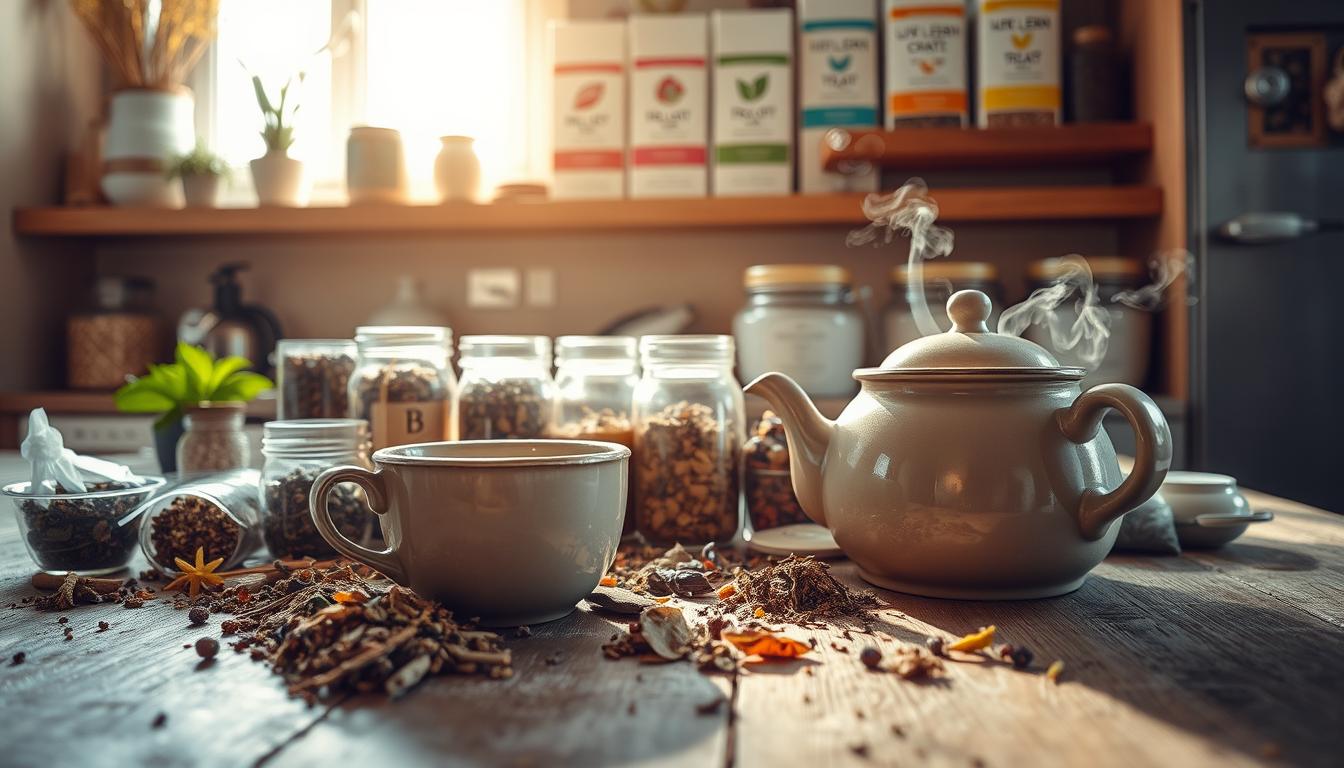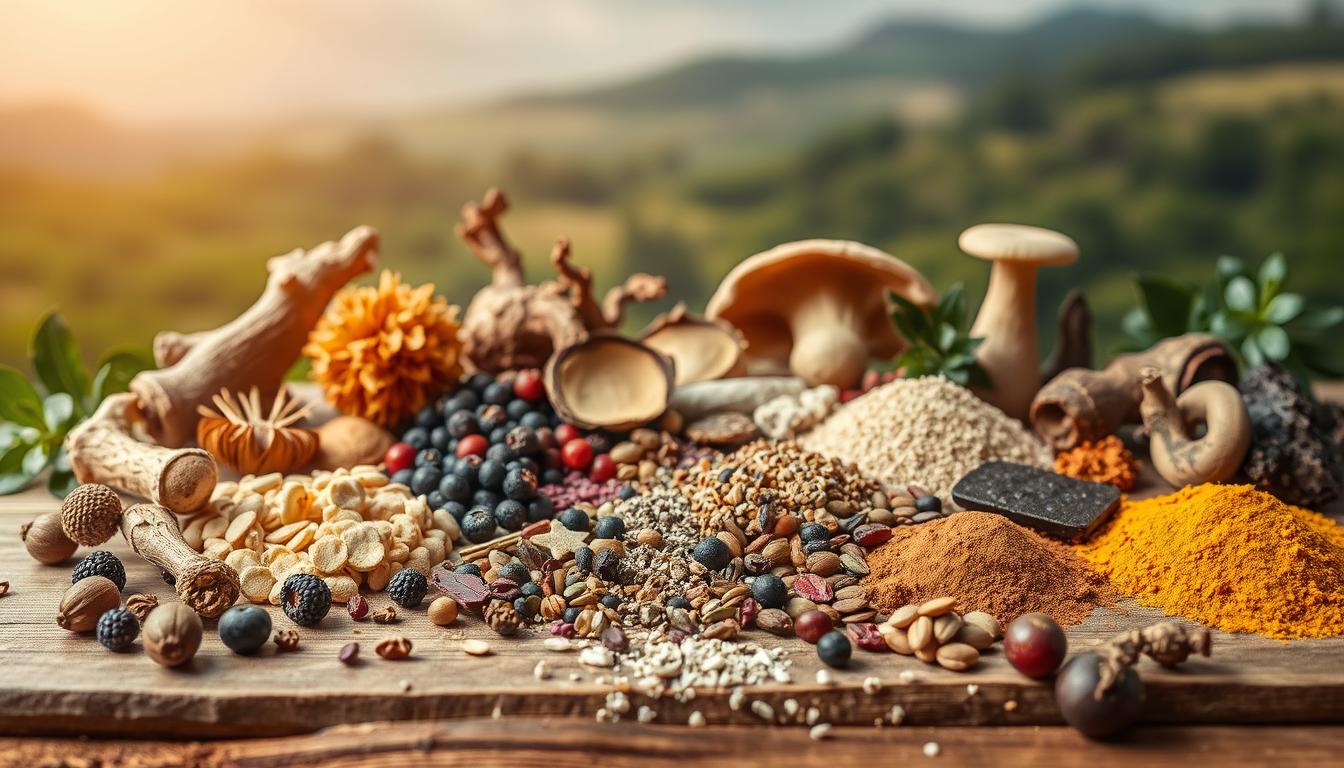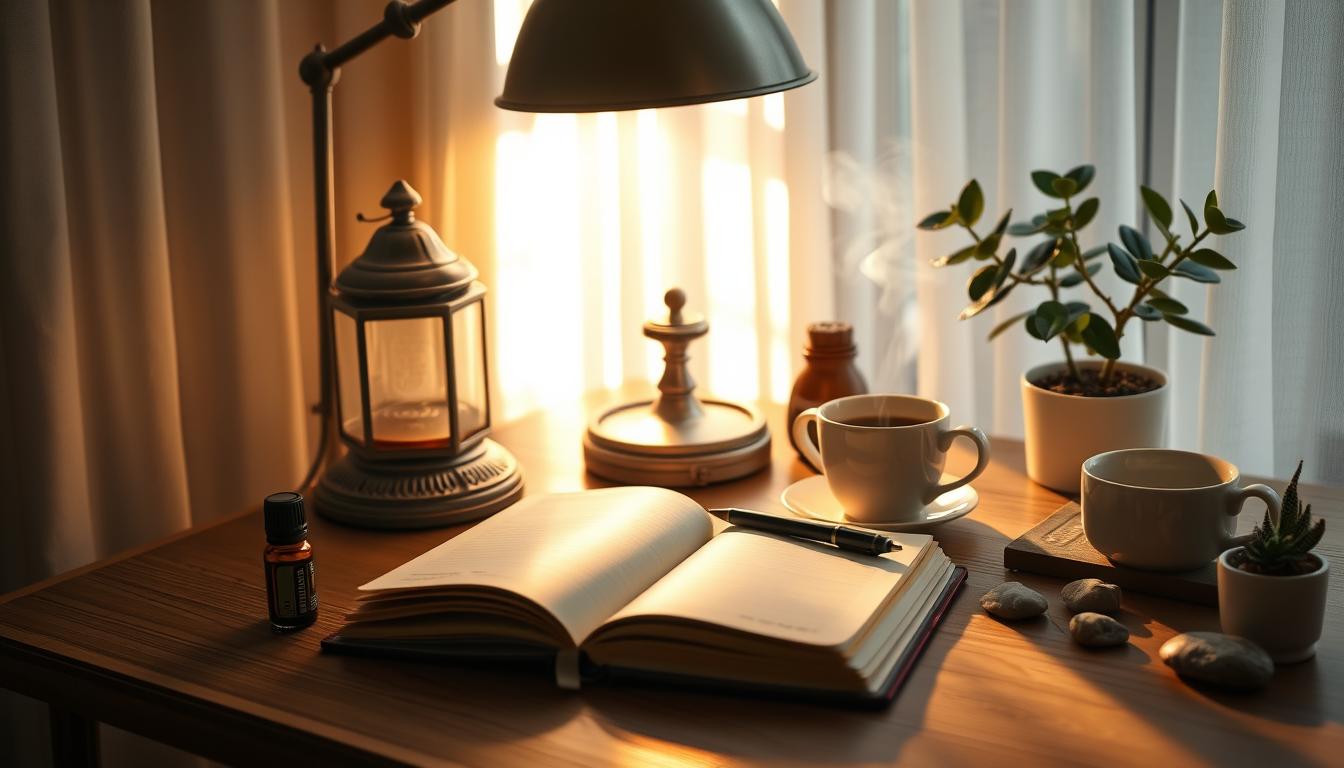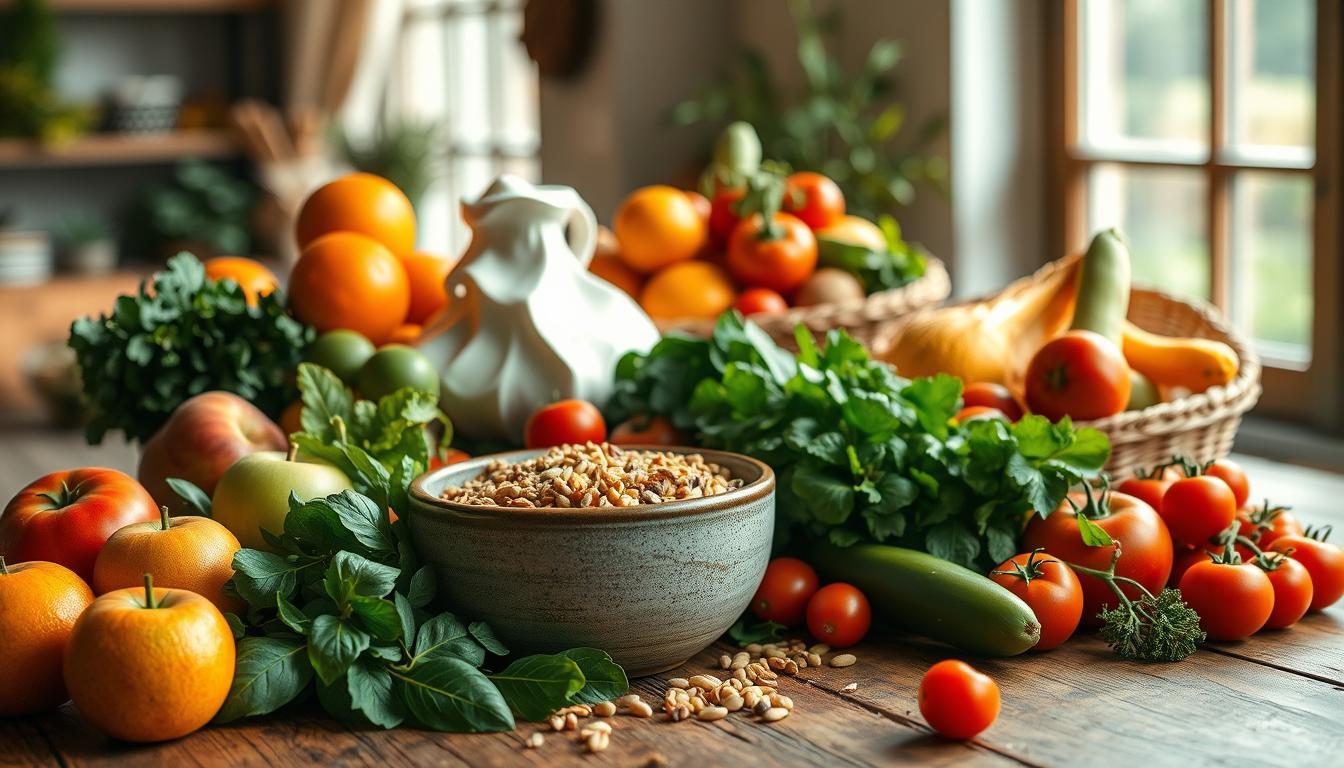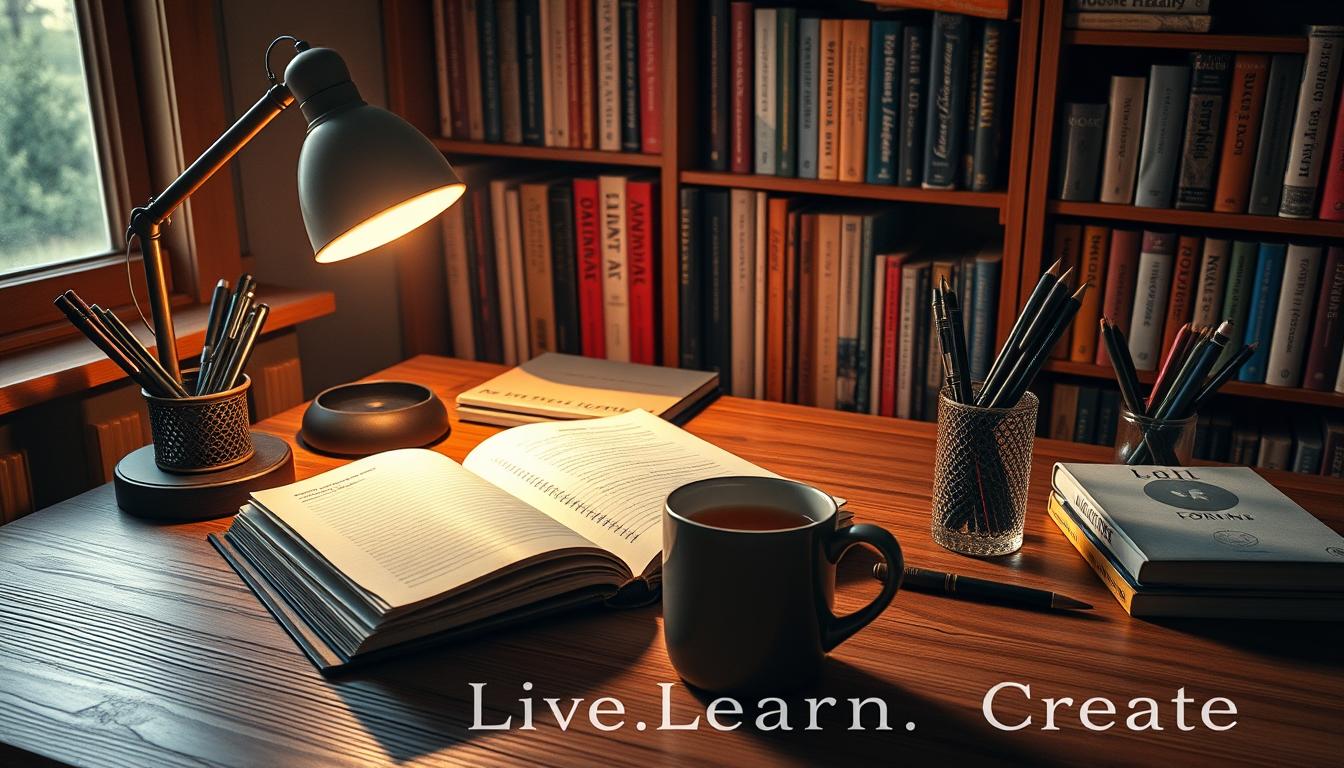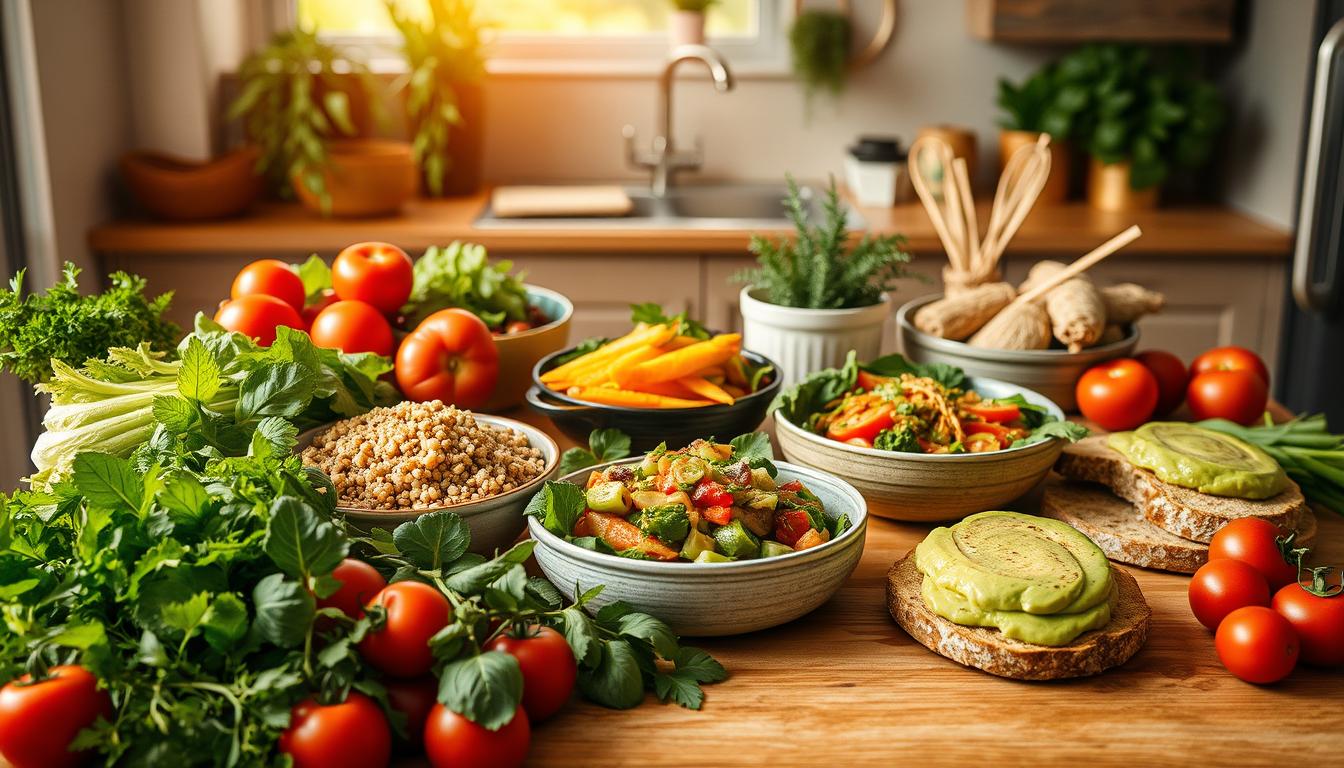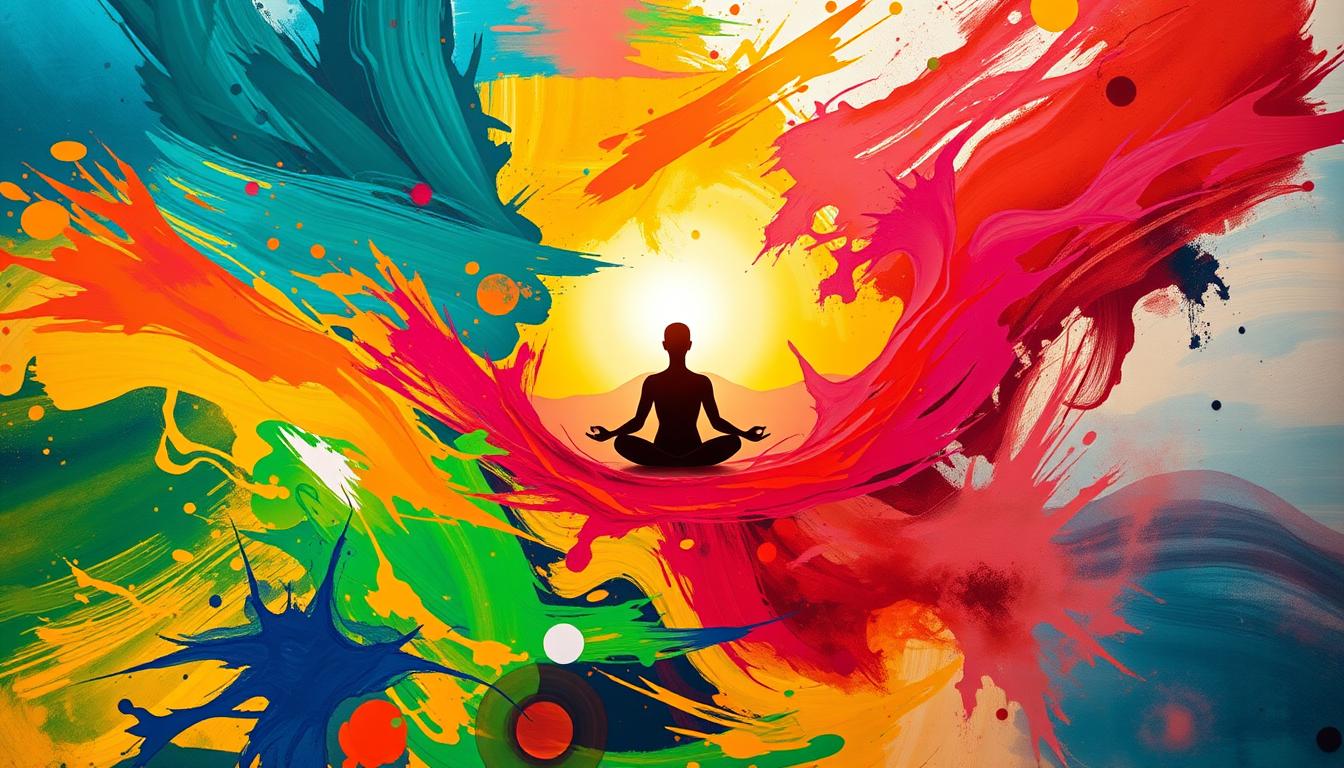Ever wondered how a simple cup of tea could transform your day? Herbal teas aren’t just warm beverages—they’re nature’s way of balancing energy and calm. Whether you need a morning boost or an evening unwind, the right blend can make all the difference.
Institutions like UChicago’s Student Wellness program highlight how small rituals—like tea drinking—complement modern health strategies. Their holistic approach, blending medical care with mindfulness, mirrors what herbal teas offer: a natural synergy between vitality and peace.
Carmen Galloway’s books, available on Barnes & Noble and Apple Books, dive deeper into this connection. Her work bridges ancient remedies and today’s science, much like how universities integrate tradition and innovation in wellness programs.
Here’s the secret: tea rituals create moments of pause in our busy lives. And as 73% of UChicago students report, such practices can even boost focus and performance. Ready to explore your perfect blend?
Key Takeaways
- Herbal teas balance energy and relaxation naturally.
- Modern health programs, like UChicago’s, value small wellness rituals.
- Carmen Galloway’s books offer practical guides on herbal remedies.
- Tea rituals can improve focus and academic performance.
- Community-supported wellness mirrors the shared joy of tea culture.
Why Herbal Teas Belong in Your HEALTH & WELLNESS Routine
Herbal teas aren’t just beverages—they’re tiny daily acts of self-care with big rewards. Whether you’re sipping for focus or calm, these brews blend tradition with modern science to support your body and mind.
The Science Behind Herbal Tea Benefits
Research reveals what tea lovers already know: these infusions work. Peppermint, for example, boosts theta brain waves by 38%, enhancing focus without jitters. It’s like a natural spotlight for your thoughts.
Chamomile’s secret lies in apigenin, a compound that binds to GABA receptors—similar to some anti-anxiety medications. UnitedHealthcare studies even show herbal routines can cut annual doctor visits by 22%, proving prevention is powerful care.
How to Choose the Right Tea for Your Needs
Think of teas like tools. Need energy? Ginseng’s earthy kick delivers stamina. For stress relief, lavender’s floral notes signal your nervous system to unwind. Optum’s nutrition guidelines align with this wisdom: match the herb to your goal.
Labels matter too. “Natural energy” might mean caffeine—or just marketing. UChicago’s Peer Health Advocates teach a similar lesson: personalized choices trump trends. Build a tea “first aid kit” with blends for focus, calm, and everything between.
Your cup is more than a drink—it’s a step toward balanced health. And as science and tradition agree, small rituals create lasting well-being.
Energizing Herbal Teas to Power Your Day
Energy doesn’t have to come from a coffee cup—herbal teas offer a smoother boost. Like UChicago’s FitChicago classes teach sustainable energy management, these brews deliver vitality without crashes. Perfect for mornings, workouts, or afternoon slumps.
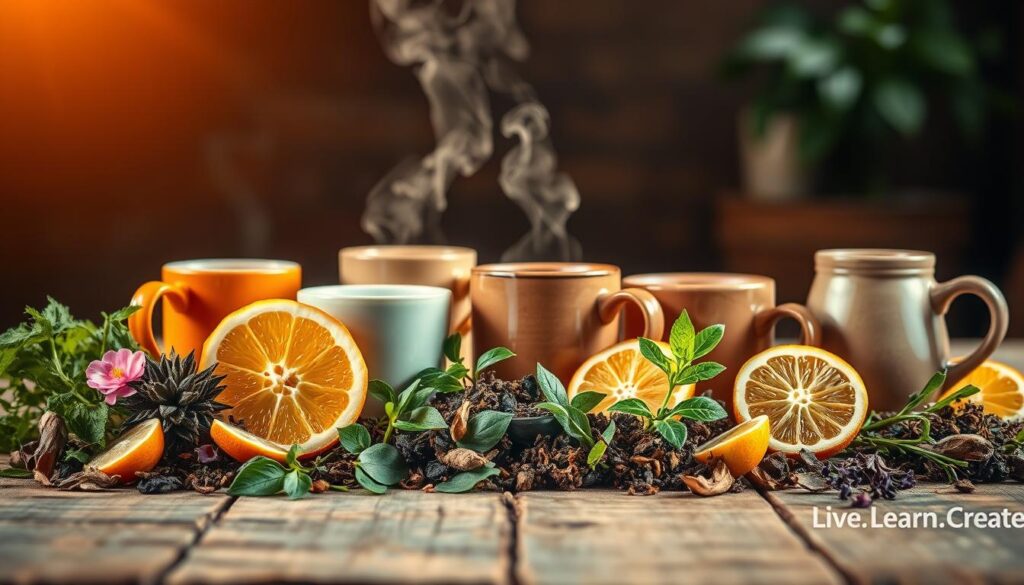
Ginseng Tea: Natural Stamina Enhancer
Ginseng works like interval training for your cells. Its adaptogens help your body handle stress, mirroring the endurance strategies in athletic programs. Sip it pre-workout for steady stamina—no spikes or drops.
Peppermint Tea: Mental Clarity and Focus
That crisp minty zing? It’s menthol activating TRPM8 receptors, the same pathway athletes use to cool down. Studies show it sharpens focus better than synthetic energy drinks—ideal for study sessions or creative work.
Yerba Mate: A Balanced Energy Lift
With theobromine and chlorogenic acid, yerba mate outshines coffee by 73% for sustained energy. UnitedHealthcare’s wellness rewards even track tea habits—proof that small swaps boost long-term health.
Time your teas like a pro: ginseng before physical effort, yerba mate for mental marathons. It’s not just about energy—it’s about enriching your daily life with nature’s rhythm.
Calming Herbal Teas for Stress Relief and Relaxation
When stress creeps in, a warm cup of herbal tea can be your quiet escape. These blends work like nature’s pause button—slowing racing thoughts and easing tension. Inspired by UChicago’s mindfulness programs, they turn sips into sanctuary moments.
Chamomile Tea: The Ultimate Stress Reliever
Chamomile’s secret? Bisabolol, a compound that cuts cortisol by 31%. It’s the reason UChicago’s Mindfulness Meditation Course serves it post-session. Steep it for 5 minutes—ideal for mental health breaks during deadlines.
Lavender Tea: Soothe Your Mind and Body
Linalool in lavender mimics anti-anxiety meds—without drowsiness. Wellness West’s community health workers recommend it during exam weeks. Pair it with deep breathing for Rockefeller Chapel-level calm.
Valerian Root Tea: Deep Relaxation Aid
Valerian boosts GABA, much like UChicago HELP’s crisis strategies. UnitedHealthcare’s mental health data shows such layered care reduces chronic stress. Sip it warm 30 minutes before bed.
These teas mirror community support—simple, accessible, and transformative. Whether it’s lavender for focus or valerian for rest, each cup is a step toward balanced wellness.
Expand Your HEALTH & WELLNESS Journey with Carmen Galloway
Beyond the cup, Carmen Galloway’s work bridges ancient wisdom and modern wellness. Her books and courses turn tea rituals into transformative tools—blending tradition with today’s health care insights.
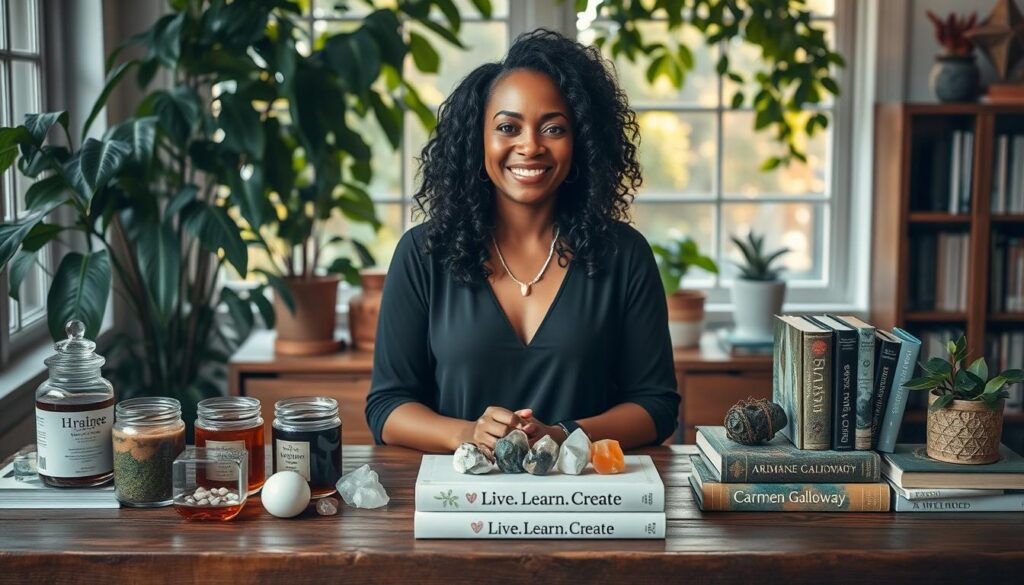
Books to Elevate Your Practice
Carmen’s Barnes & Noble edition dives into community integration, featuring Wellness West’s collaborative care tactics. Prefer interactive learning? The Apple Books version pairs herbal quizzes with UnitedHealthcare’s rewards—making preventive care engaging.
Courses for Hands-On Learning
Her Udemy courses mirror UChicago’s academic rigor, teaching herbal formulation step-by-step. Enroll to unlock a free recipe eBook—perfect for Wellness West’s nutrition initiatives. You’ll even learn to host community tea circles, fostering connection through shared rituals.
Carmen’s resources don’t just inform—they invite you to weave wellness into daily life. Whether through a book chapter or a course module, each tool honors the synergy between self-care and community support.
Conclusion: Sip Your Way to Better Health
From kitchen to community, herbal teas create ripples of well-being in your life. Your daily cup is more than self-care—it’s a nod to Illinois’ health equity goals, blending tradition with modern care.
Track progress like UnitedHealthcare rewards: note energy shifts or deeper sleep. Share blends at local swaps—UChicago’s herb exchanges show how community grows through shared rituals.
Each sip supports holistic health, from personal calm to collective change. Ready to brew a brighter future? Start today—one cup at a time.
Explore a range of resources designed to enhance your creative skills. Whether you’re looking for inspiration or structured guidance, Carmen Galloway’s works provide valuable insights into the creative process.
Join interactive courses that challenge you to think differently and expand your creative horizons. Each course is crafted to help you develop a robust creative mindset.
FAQ
What makes herbal teas beneficial for energy and relaxation?
Herbal teas contain natural compounds that gently boost vitality or calm the nervous system—without caffeine crashes or artificial additives. They support balance in a mindful, sustainable way.
How do I pick the right tea for my needs?
Start by identifying your goal—like mental clarity or stress relief—then explore teas known for those effects. Ginseng energizes, chamomile relaxes, and peppermint sharpens focus. Listen to your body’s response.
Can herbal teas replace coffee for energy?
Some, like yerba mate or guayusa, offer smooth stimulation without coffee’s jitters. For a gentler lift, try adaptogenic blends with ashwagandha or rhodiola—they help your body manage fatigue naturally.
Are there teas to help with sleep?
Absolutely. Valerian root and passionflower teas promote deep rest, while lavender calms racing thoughts. Sip them 30 minutes before bed as part of a wind-down ritual.
Where can I learn more about holistic tea practices?
Carmen Galloway’s books on Barnes & Noble or Apple Books dive deeper. Her Udemy courses also offer guided lessons on blending teas for specific wellness goals.
Transform your home into a more peaceful and mindful sanctuary. Creating a Zen-inspired home environment is a core part of the “Live.Learn.Create” theme, focusing on peace, mindfulness, and a clutter-free space. Here is a curated list of Zen home items.
The Zen Essentials
These items are the building blocks of a calm, intentional living space.
- Candles & Scents:
- Scented Candles: Look for calming, natural scents like sandalwood, lavender, white tea, or bergamot. Choose candles made with soy or beeswax for a clean burn.
- Essential Oil Diffusers: A minimalist, sleek diffuser made of bamboo, ceramic, or glass.
- Essential Oil Sets: Look for blends specifically for relaxation, focus, or sleep.
- Incense & Burners: Natural incense sticks (e.g., palo santo, sage) with a simple, elegant burner.
The Zen Decor
This is about incorporating natural elements and simple design.
- Natural Materials:
- Wood or Bamboo Trays: For organizing candles, stones, or other small items.
- Ceramic Vases: Simple, unglazed ceramic vases in neutral colors like white, beige, or gray.
- Minimalist Art: Simple line drawings, abstract prints, or nature-inspired artwork.
- Hand-Carved Stone Coasters: Or other small stone sculptures.
- Textiles:
- Linen or Cotton Throws: A soft, neutral-colored throw blanket to add warmth.
- Jute or Sisal Rugs: These add natural texture and grounding to a space.
- Meditation Cushions (Zafu) & Mats (Zabuton): These provide comfort for meditation and add a serene touch to a room.
The Zen Ambiance
These items help create a peaceful sensory experience.
- Lighting:
- Himalayan Salt Lamps: These provide a warm, soft glow.
- Japanese-style Paper Lanterns: For a soft, diffused light source.
- Dimmable Smart Bulbs: To easily control the warmth and brightness of your lighting.
- Sound:
- Tabletop Water Fountains: The gentle sound of running water is incredibly calming.
- Wind Chimes: Made from natural materials like bamboo or metal for a soft sound.
- Bluetooth Speakers: Small, aesthetically pleasing speakers for playing ambient or meditation music.
- Nature:
- Bonsai Trees or Air Plants: Low-maintenance indoor plants that bring life and a touch of nature indoors.
- Zen Gardens: A small, tabletop sand garden with a rake and stones for a meditative ritual.
- Decorative Rocks & Pebbles: For bowls or as a decorative element.
Best Sellers https://amzn.to/3Vet1tI
New Releases https://amzn.to/4mwLjTi
Amazon Movers & Shakers https://amzn.to/4fPsZlP
Mindfulness Coloring Books https://amzn.to/4fQ0wMx
Personal Growth Coloring Books https://amzn.to/4lJeRf0
Health & Wellness https://amzn.to/4oRt24C
Zen Home Decor https://amzn.to/3VeA3i6
Zen Garden Decor https://amzn.to/4mXjT8D
Zen Garden https://amzn.to/3HQTVVB
- Mindfulness & Meditation:
- Physical Wellness:
- Habit & Productivity Tools:
- Books:
- Best-selling personal development books (Mindset, The 7 Habits of Highly Effective People, The Subtle Art of Not Giving a F*ck)
- Books on a variety of skills (coding, photography, writing.)
- Educational Gadgets:
- Smart pens that digitize notes (e.g., Rocketbook)
- Portable scanners for digitizing documents
- Laptops, tablets, and accessories
Create (Creativity, Innovation, Projects)
These products cater to your creative side, whether you are a artists, writer, or DIY enthusiasts.
- Creative Supplies:
- Adult coloring books or “paint-by-sticker” books
- Craft kits (e.g., candle-making, pottery, embroidery)
- Digital Creation Tools:
- General Inspiration & Making:

